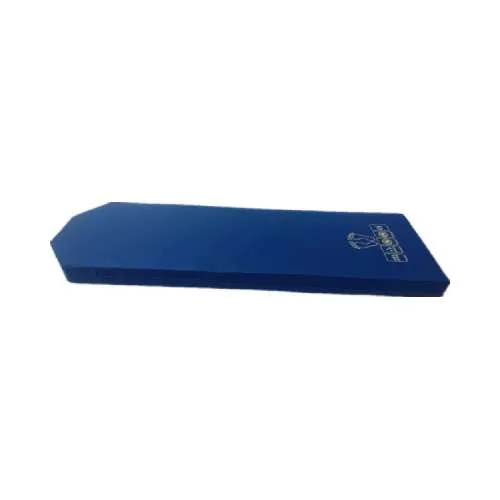Innovation and Technical Progress of Ambulance Stretcher Mattress
For hospital mattress suppliers who are committed to providing high-quality emergency care, it is very important to invest in modern ambulance stretcher mattresses that combine advanced materials, decompression technology and ergonomic design.

Key Innovation of Ambulance Stretcher Mattress
Advanced stretcher foam mattress technology
Memory foam
Memory foam has completely changed the comfort and decompression ability of ambulance stretcher mattress. This viscoelastic material conforms to the patient's body shape, distributes the weight evenly and minimizes the pressure points. The ability of memory foam to provide personalized support is especially beneficial for patients who may lie on a stretcher for a long time.
Gel injection foam
Gel foam combines the decompression characteristics and cooling ability of memory foam. This innovation solves the problem of temperature regulation, which is very important for patients' comfort, especially during long transportation time. The gel layer helps to dissipate heat, reduce the risk of overheating and enhance the overall patient experience.
High density foam
High-density foam provides excellent support and durability, making it an ideal choice for emergency medical situations. These foams can withstand the harsh conditions of frequent use, and help to prevent sagging over time, ensuring that ambulance stretcher mattresses remain effective in providing support and decompression.
Multilayer and hybrid design
Layered construction
Many modern ambulance stretcher mattresses adopt multi-layer design, combined with different types of foam to optimize comfort and support. For example, a mattress may have a memory foam top layer for decompression, a high-density foam middle layer for support, and a solid foam bottom layer for stability.
Hybrid solution
Hybrid hospital mattresses containing foam and inflatable chambers provide enhanced pressure relief and adjustability. These designs allow dynamic support, and the air chamber can expand or contract to meet the needs of patients. This versatility is particularly beneficial for patients with different medical conditions.
Alternating pressure system
Alternating pressure hospital mattresses utilize air chambers that are inflated and deflated in a predetermined sequence. This technology actively redistributes pressure points, which helps to prevent pressure ulcers, which can develop rapidly in patients who can't move. The continuous change of pressure promotes blood circulation and reduces the risk of skin damage.
Intelligent sensors and monitoring
Recent innovations have introduced smart sensors into ambulance stretcher mattresses. These sensors monitor the pressure distribution and alert medical staff when patients are at risk of developing pressure ulcers. By providing real-time feedback, these systems can make timely intervention and adjustment to improve the safety of patients.
Ergonomic Design Innovation of Ambulance Stretcher Mattress
Contour design provides better support.
Modern ambulance stretcher mattresses usually adopt contour design that conforms to the natural curve of human body. This ergonomic method provides better support and comfort, reduces the risk of injury and enhances the overall experience of patients during transportation.
Lightweight and collapsible options
With the promotion of more effective emergency response, the weight of ambulance stretcher mattress has become an important consideration. Innovation has led to the development of lightweight foldable stretcher mattress, which are easier to transport and store in hospitals. This convenience allows emergency personnel to operate more effectively under high pressure.
Adjustable compactness function
Some ambulance stretcher mattresses now have adjustable hardness settings, allowing medical staff to customize the support level according to the individual needs of patients. This function is particularly useful for patients who adapt to different medical conditions, and can ensure the best comfort and pressure release.
-
Sleep Tracking Mattress GuideNewsJul.28,2025
-
Silicone Mattress for Everyday ComfortNewsJul.28,2025
-
Mattress for Pressure Point ReliefNewsJul.28,2025
-
Customized Comfort with Specialized MattressesNewsJul.28,2025
-
Cool Gel Foam Mattress for Better SleepNewsJul.28,2025
-
Coir and Foam Mattress GuideNewsJul.28,2025
-
Ambulance Stretcher Mattress: Reliable Comfort on the MoveNewsJul.28,2025

